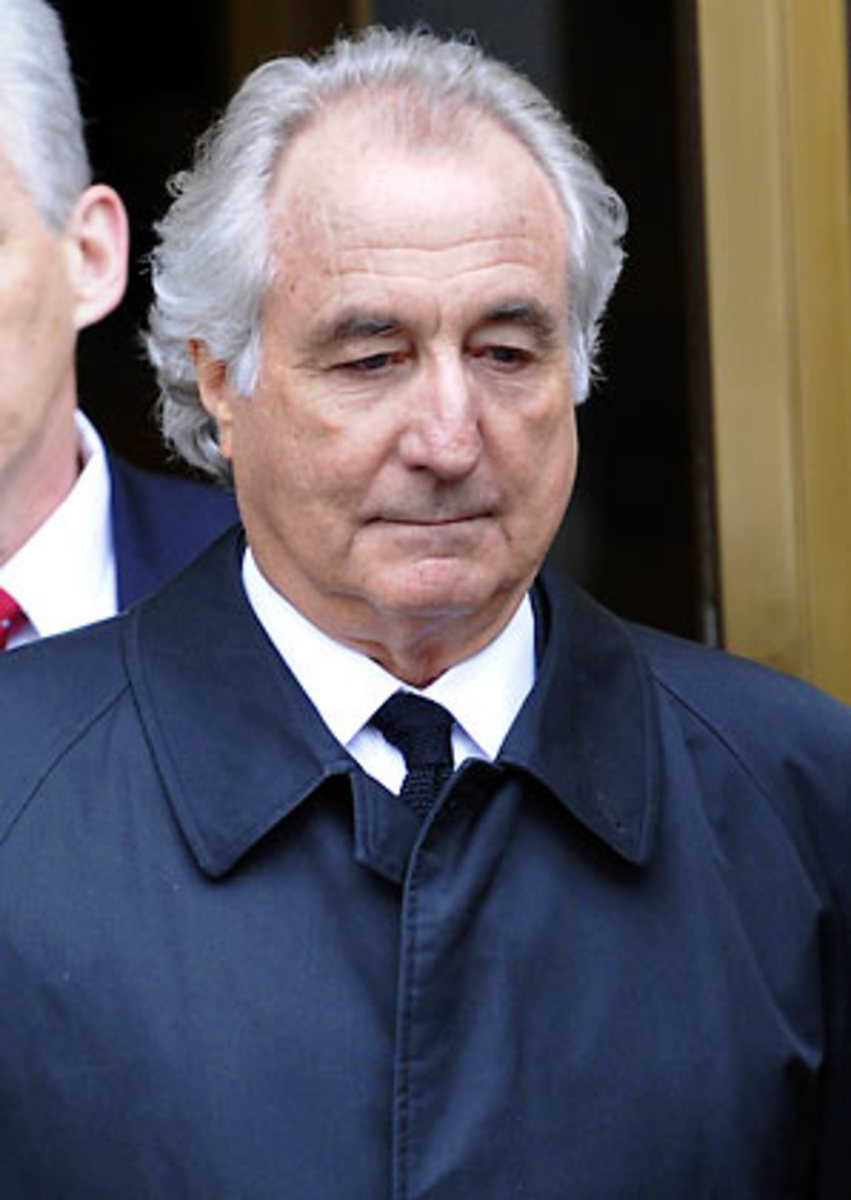Are the Mets suffering from the curse of Bernie Madoff?
The Boston Red Sox had Babe Ruth; the Chicago White Sox had 1919; the Chicago Cubs have their goat. Every properly cursed franchise needs some hate symbol to stand in for everything that's haunted them. And perhaps the New York Mets have it now, with the disgraced financier Bernie Madoff's prime tickets to Citi Field up for sale on eBay. Someone ought to buy them and burn them.
One can argue about just when it became clear that the Mets, rather than suffering a normal run of bad luck, were working against broader forces, the sort that turn fans into self-pitying sentimentalists and pundits into occultists. Some would say it was when Yadier Molina's home run cleared the wall in the seventh game of the 2006 National League Championship Series. Others locate it in 2007, when Tom Glavine hit a man with the bases loaded with his last pitch as a Met, punctuating the final loss in what was perhaps the worst September collapse in baseball history.
Wretched as any of this might have been, though, the essential moment came last December with the revelation that the Wilpon family, which owns the Mets, had lost an unspecified but presumably substantial part of their fortune to Madoff's Ponzi scheme. To which other team could this possibly happen?
From the public's point of view, the worst thing about this, aside from the lingering suspicion that the fraud put constraints on the payroll, was how wholly in line it was with the way the team has been run for years now. No one deserves to lose a lot of money to a con man, but to do so you have to be at least a bit bent, believing you can get something without working for it. You also have to be rather too optimistic for your health. Which exactly describes the Mets, and explains why their chances of winning the National League pennant are so much dodgier than they should be.
That their chances are as good as they are is due to several fantastic players, the best core the game has seen in a decade. Johan Santana is the best starting pitcher in the league, David Wright the best third baseman, Carlos Beltran the best center fielder, Francisco Rodriguez the best closer, and if Jose Reyes isn't the best shortstop that's just because Hanley Ramirez is even better. This gives the Mets an enormous advantage. They should win 100 games easily if the rest of the team is just average.
Sadly for them it's sketchy -- lacking power in the outfield, depth in the rotation and punch on the bench, among other things -- and this isn't an accident. Years of frittering away useful pitchers, infielders and reserves in minor deals, and of making do when they didn't have to, have left them wholly dependent on a few strong players in a way no really good team should be. Better teams like Boston may not have quite the Mets' top talent, but also don't waste roster spots or punt at certain positions. Another way to put this is that they act as if wins are something you have to work hard for, not something you get for nothing. The Mets, though, are structurally premised on the idea that if your front-line players are good enough it doesn't much matter what everyone else does because wins will just sort of happen. It's sucker thinking.
Take the starting rotation. Last year, the team got 629 innings of 3.43 ERA baseball from their top three starters, on the back of terrific performances from Santana and Mike Pelfrey. This year, a simple baseline projection has Santana with 200 IP and a 3.25 ERA this year, and Pelfrey with 165 IP and a 4.10 ERA. If Santana and Pelfrey pitch at that level, the third starter would need to pitch around 260 IP with a 3.15 ERA -- about what CC Sabathia did in his Cy Young campaign in 2007 -- just for the Mets to stay even. They of course got no pitcher capable of anything near that, bringing back the flaky Oliver Perez. That's understandable; great pitchers are rare and expensive. But they also didn't get a strong fifth starter to lessen the burden on the top starters.
Much the same is true in the lineup. Given how likely it is that Beltran will regress a bit at age 32, that for first baseman Carlos Delgado to even match year's performance he would have to turn in one of the 10 best seasons any 37-year-old first baseman has ever had, and that they can expect little power from corner outfielders Daniel Murphy and Ryan Church, the Mets clearly needed another bat. Instead, after passing on the best winter buyer's market in memory, they got what's left of Gary Sheffield.
Is it too much to draw a line from questionable baseball moves to Madoff to that tendency toward failure that's come to hang on the team like a badly worn suit? Perhaps, but I don't think so. Character matters -- maybe not in the sense that broadcasters mean it when they natter on about the ineffable virtues of some scrappy backup infielder, but certainly in the broader institutional sense that defines the direction and motives of a team. Here, the Mets are missing something. Under different general managers and field managers, in good times and bad, they've lacked focus and attention to detail, and staked seasons on the notion that good things would just somehow happen. All they'll have to do to make people stop worrying about this is win, in a year they have no reason not to -- but what if they don't?






